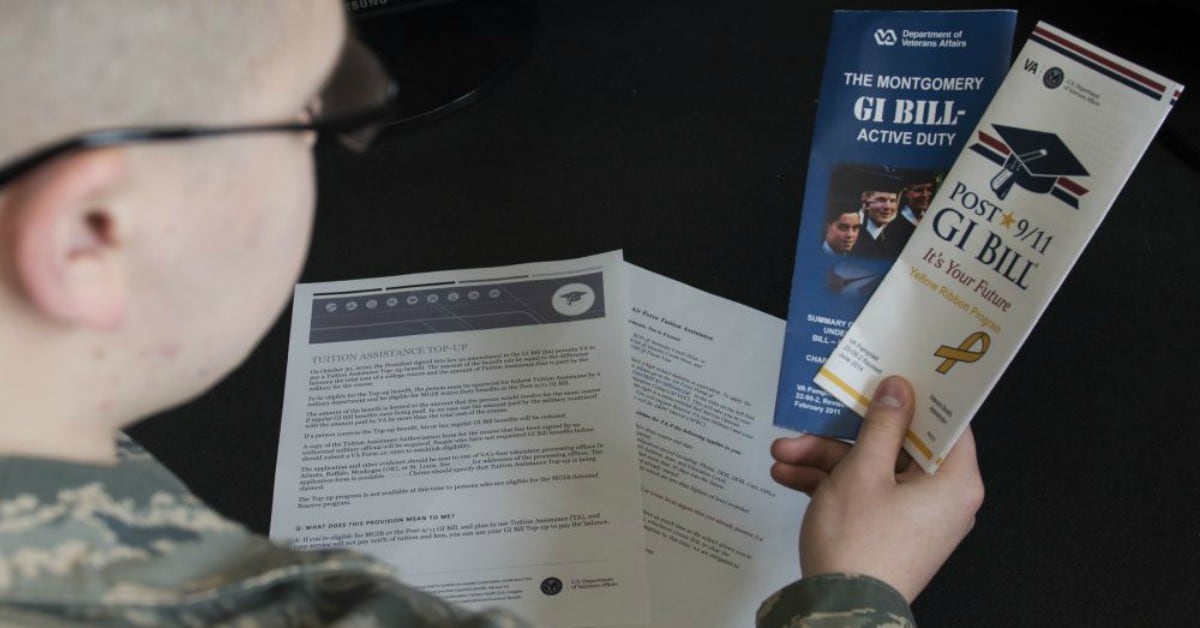Tens of thousands of student veterans shortchanged in their housing stipends last year will have to wait until summer 2020 before they start seeing that money paid back, Veterans Affairs officials acknowledged on Tuesday.
The news prolongs ongoing concerns about how the department has handled education benefits for veterans, and comes as VA officials prepare in the next few weeks to implement significant changes in how those housing payouts are processed for the spring 2020 semester.
As a result of new benefits calculations, the department estimates that about 21,000 students using post-9/11 GI Bill money will see significant decreases in their monthly housing checks, while another 59,000 will see increases.
RELATED

VA leaders testified before the House Veterans’ Affairs Committee that they are confident their technology and processing systems will be ready to start that work on Dec. 1, the latest in a series of sliding deadlines.
Lawmakers at the event said they are generally encouraged with progress by the department in recent months, especially in light of the disastrous financial issues that emerged with department payouts last year.
During the fall 2018 semester, more than 400,000 veterans saw their housing stipends incorrectly processed that semester as VA officials tried to implement portions of the Forever GI Bill legislation, passed in August 2017.
Department officials received harsh public criticism both for the processing failures and for promises earlier in the year that they would meet deadlines for the work without problem.
On Tuesday, during an oversight hearing before the House Veterans’ Affairs Committee, VA Under Secretary for Benefits Paul Lawrence said officials have learned from those missteps.
“VA has made significant progress in the development and deployment of the new solution, and we are on track to meet the Dec. 1, 2019, target date,” he said.
At the center of the problems — both past and future — are two changes in the Forever GI Bill legislation regarding how housing stipends are calculated. The first requires the department to link those stipends to military Basic Allowance for Housing rates at zip codes across the country.
The second requires payments to reflect student’s primary campus location. Students attending colleges with satellite campuses previously could collect housing payouts based on the main campus location. The new calculation could mean thousands of dollars less.
For example, a student attending the University of San Francisco under the post-9/11 GI Bill would be eligible for a housing payout of more than $4,300 a month next semester. But a student at the same school’s campus in Sacramento 90 miles away will now be eligible for housing payments of only $2,100 a month.
Charmain Bogue, executive director of education services for the Veterans Benefits Administration, said her office has been in contact with numerous campuses in recent months to prepare students for those changes.
They are also prepping campus officials for the paperwork they’ll need to get veterans refunds for underpayments in the last three semesters, most related to cost-of-living adjustment mistakes in the fall 2018 semester.
Those payouts — which could range from a few hundred dollars to a few thousand — will begin being processed in the fall and could end up in veterans’ bank accounts next summer. But VA officials could not offer exact timelines yet on when that money will be sent out.
The missing funds caused financial difficulties for numerous students last year, and VA has promised assistance programs for individuals whose studies are jeopardized by the problems. Bogue also promised increased communication with college officials and veterans advocates to ensure that information on the changes is being made public.
Outside groups said they have been pleased with that work so far, but disheartened by the continued delay.
“We know they have a tall order with this,” said Lauren Augustine, vice president of government affairs at Student Veterans of America. “But we’re disappointed that it will be nearly two years later for veterans to wait for these payments to come through. VA’s outreach work with students on this issue will have to continue to make sure they are getting what they need.”
VA officials said they will handle all underpayments of housing stipends before pursuing any overpayment issues, and have promised liberal use of hardship waivers to dismiss that debt.
Leo covers Congress, Veterans Affairs and the White House for Military Times. He has covered Washington, D.C. since 2004, focusing on military personnel and veterans policies. His work has earned numerous honors, including a 2009 Polk award, a 2010 National Headliner Award, the IAVA Leadership in Journalism award and the VFW News Media award.





